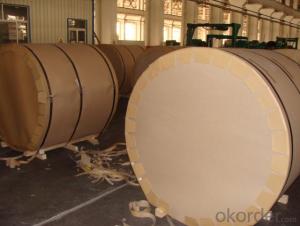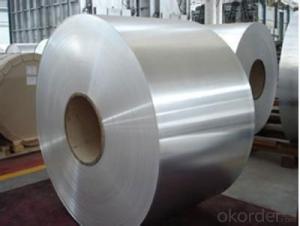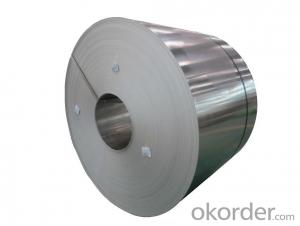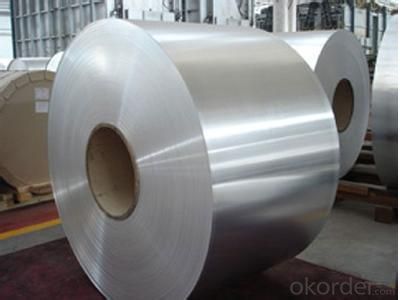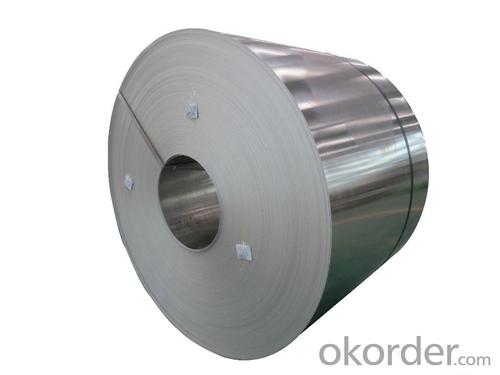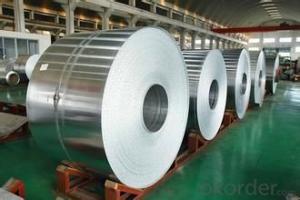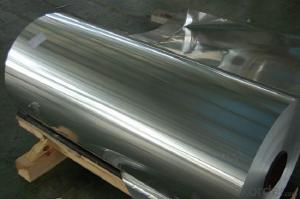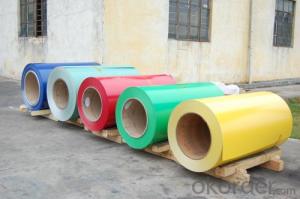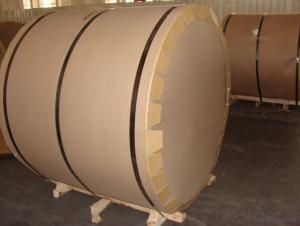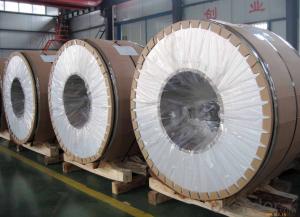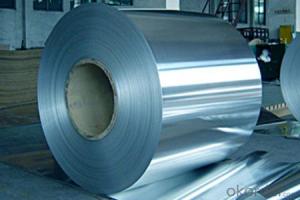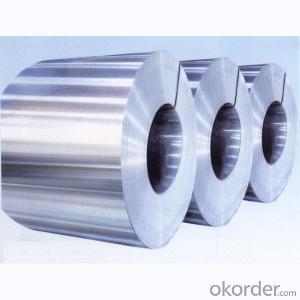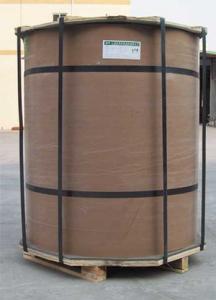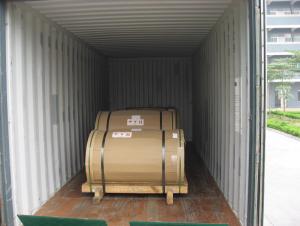Powder Coated Aluminum Coil - AA5XXX Mill-Finished Aluminum Coils for Construction
- Loading Port:
- Shanghai
- Payment Terms:
- TT OR LC
- Min Order Qty:
- 3 m.t.
- Supply Capability:
- 10000 m.t./month
OKorder Service Pledge
OKorder Financial Service
You Might Also Like
Specification
1.Structure of AA5xxx Mill-Finished Aluminum Coils Used for Construction Description Description
AA5xxx Mill-Finished Aluminum Coils Used for Construction Description has great ductility, heat conductivity, anti-corrosion and moisture resistance properties.
AA5xxx Mill-Finished Aluminum Coils Used for Construction Description is widely used for electronics, instruments, lighting decoration, packing industry, house decoration, curtain wall, honeycomb-core panel, sandwich panel, aluminum composite panel and aluminum composite pipes.
2.Main Features of AA5xxx Mill-Finished Aluminum Coils Used for Construction Description
• Superior quality of raw material
• Reasonable and stable chemical composition
• Accurate tolerance
• Goode mechanical property
3.AA5xxx Mill-Finished Aluminum Coils Used for Construction Description Images
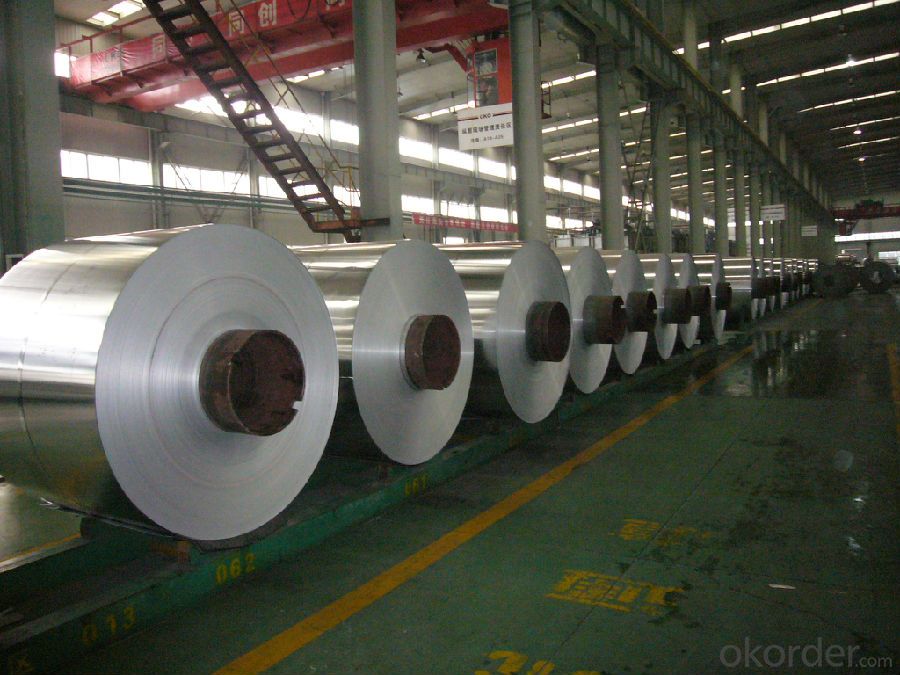
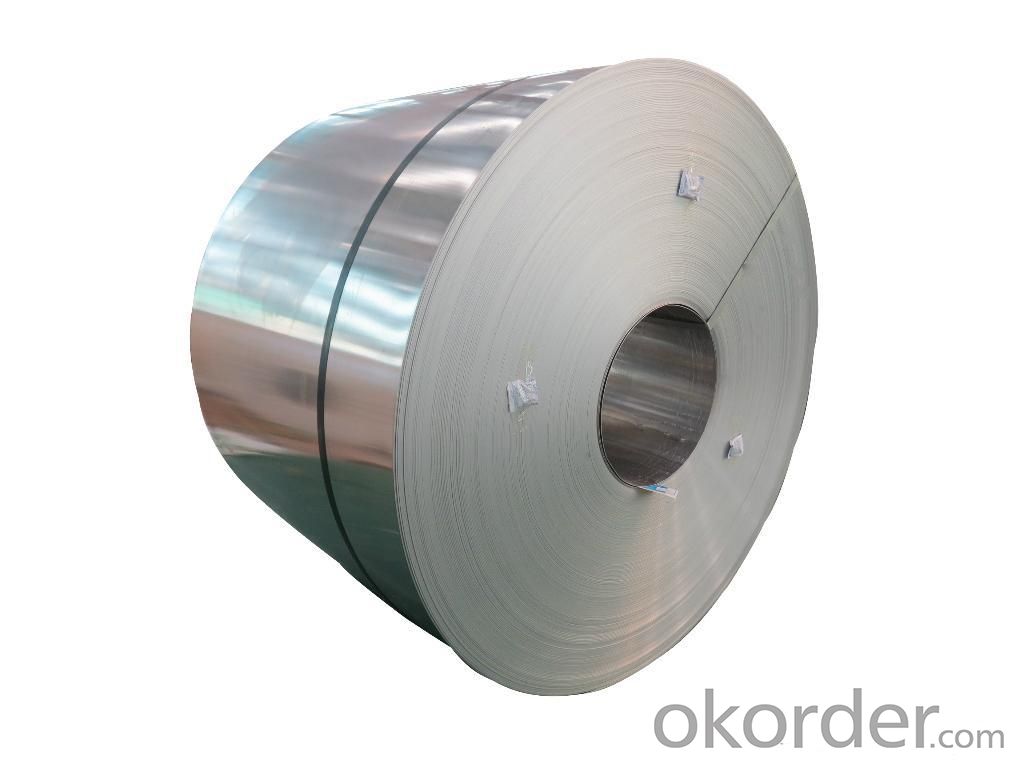
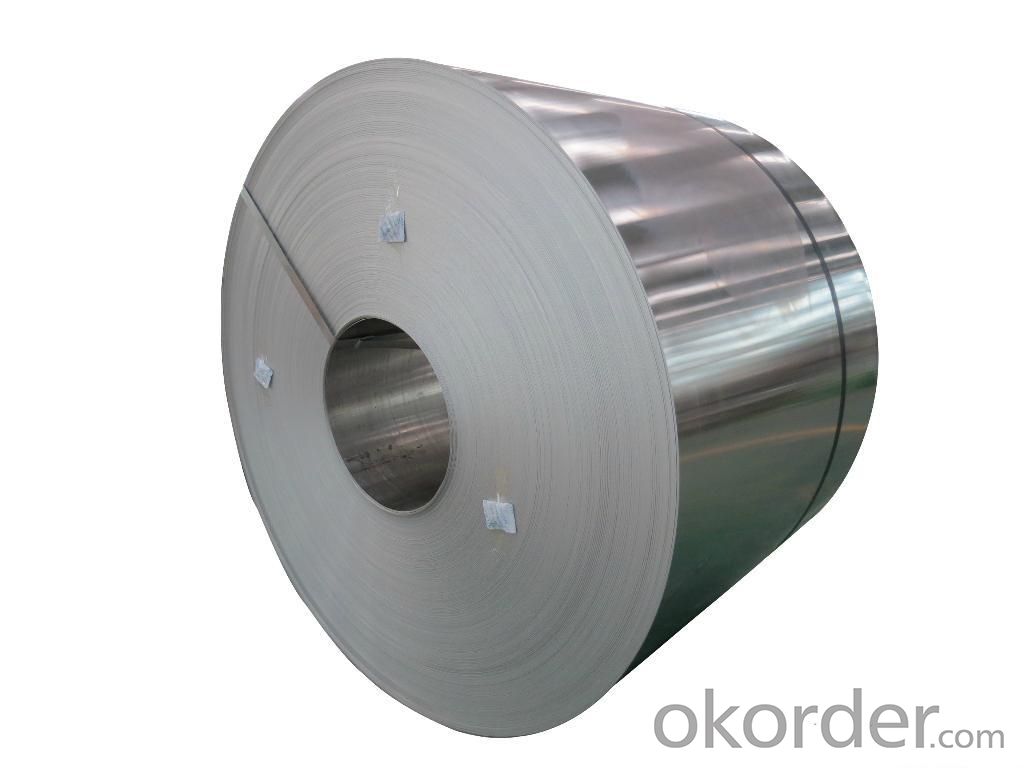
4.AA5xxx Mill-Finished Aluminum Coils Used for Construction Description Specification
Alloy | AA1xxx (AA1050, AA1060, AA1070, AA1100 etc. |
Temper | H14, H16, H18, H22, H24, H26, H32, O/F |
Thickness | 0.2mm -- 100mm |
Width | 30mm -- 1700mm |
Standard | GB/T 3880-2006,EN,ASTM,JIS |
5. FAQ of AA5xxx Mill-Finished Aluminum Coils Used for Construction Description
A.How to guarantee the quality?
Customers are welcome to our mill to visit and check the products. Besides, we can arrange a third party to test AA5xxx Mill-Finished Aluminum Coils Used for Construction Description.
B.When will you deliver the products?
AA5xxx Mill-Finished Aluminum Coils Used for Construction Description will be delivered within 35 days after receiving advanced payment or original L/C.
- Q: What are the typical applications of aluminum coils in the automotive industry?
- Aluminum coils are widely used in the automotive industry for various applications due to their advantageous properties. One typical application is in the manufacturing of automotive heat exchangers, such as radiators and condensers. The high thermal conductivity of aluminum allows for efficient heat transfer, enhancing the cooling efficiency of the vehicle's engine and air conditioning system. Another common use of aluminum coils in the automotive industry is for making lightweight body panels and structural components. Aluminum is known for its low density, which helps reduce the overall weight of the vehicle. This, in turn, improves fuel efficiency and reduces emissions. Additionally, aluminum's high strength-to-weight ratio makes it ideal for impact-absorbing structures, enhancing the safety of the vehicle. Aluminum coils are also utilized in the production of electrical wiring systems and connectors in automobiles. Aluminum's excellent electrical conductivity enables the efficient transmission of electrical signals throughout the vehicle. Furthermore, its corrosion resistance properties make it suitable for use in various weather conditions. Moreover, aluminum coils find application in the production of suspension systems, such as control arms and knuckles. The stiffness and durability of aluminum help enhance the vehicle's handling and responsiveness, resulting in improved driving dynamics. In summary, the typical applications of aluminum coils in the automotive industry include heat exchangers, lightweight body panels, electrical wiring systems, and suspension components. These applications capitalize on aluminum's advantageous properties, such as high thermal conductivity, low density, excellent electrical conductivity, and corrosion resistance.
- Q: Can aluminum material be utilized as a baking surface for bread?
- <p>Aluminum coils are not typically used for baking bread. While aluminum is a good conductor of heat and is used in baking sheets and muffin tins, it's usually in a flat, solid form. Aluminum coils, often used for industrial purposes like heat exchangers, are not designed for direct food contact. For baking bread, it's best to use materials specifically designed for baking, such as silicone mats, parchment paper, or non-stick baking sheets. These materials are safe for food contact and can withstand the high temperatures required for baking bread.</p>
- Q: Are there any limitations to the maximum coil diameter of aluminum coils?
- Yes, there are limitations to the maximum coil diameter of aluminum coils. The maximum coil diameter is determined by several factors including the type and thickness of the aluminum, the equipment used for coiling, and the intended application of the coil. Generally, larger coil diameters can be achieved with thinner and more ductile aluminum alloys. However, as the coil diameter increases, it becomes more challenging to maintain the structural integrity of the coil and prevent deformation, wrinkling, or damage during handling and transportation. Additionally, the equipment used for coiling may have limitations in terms of the maximum diameter it can handle. Therefore, it is important to consider these factors when determining the maximum coil diameter for aluminum coils.
- Q: Are aluminum coils suitable for manufacturing cookware?
- Aluminum coils, indeed, prove to be appropriate for the production of cookware. The reason behind aluminum's popularity in cookware lies in its exceptional heat conductivity, which results in uniform heating and efficient cooking. Moreover, its lightweight and sturdy nature make it convenient to handle and long-lasting. Additionally, aluminum possesses resistance against rust and corrosion, making it the perfect choice for cookware frequently exposed to water and heat. Nevertheless, it is crucial to acknowledge that uncoated aluminum cookware might react with certain acidic or alkaline foods, leading to a metallic taste. To tackle this issue, numerous aluminum cookware manufacturers utilize non-stick coatings or anodized finishes to prevent food reactions and enhance the cookware's durability. All in all, aluminum coils serve as a suitable material for the manufacture of cookware, but it is imperative to consider the specific requirements and coatings necessary for various types of cookware to ensure safety and optimal performance.
- Q: What are the different surface treatments for aluminum coils?
- Aluminum coils can undergo various surface treatments, each offering distinct properties and benefits. The options for treating aluminum coils include: 1. Mill Finish: This is the natural, untreated surface of aluminum coils straight from the mill. It has a slightly rough texture and is commonly used when appearance is not a primary concern. 2. Anodized Finish: Anodizing, an electrochemical process, forms a protective layer on the surface of the aluminum coil. This treatment enhances corrosion resistance, durability, and offers a wide range of color choices. 3. Painted Finish: Aluminum coils can be coated with different paint systems to improve appearance and prevent corrosion. Painted finishes provide a vast selection of colors, gloss levels, and textures, allowing for customization based on specific design needs. 4. Polished Finish: Polishing, a mechanical process, creates a smooth and reflective surface on the aluminum coil. This treatment is often used for decorative purposes, providing a high-quality and visually pleasing finish. 5. Brushed Finish: Brushing involves mechanically brushing the surface of the aluminum coil in parallel lines, creating a distinctive texture. This treatment is commonly utilized in architectural and interior design applications. 6. Embossed Finish: Embossing is the process of creating raised or recessed patterns on the surface of the aluminum coil. This treatment adds texture, enhances strength, and can be used for decorative purposes or to improve grip in certain applications. 7. Laminated Finish: Lamination involves applying a layer of protective film or coating to the surface of the aluminum coil. This treatment adds extra protection against scratches, abrasion, and UV rays, making it suitable for outdoor use. Each surface treatment option offers its own advantages and is selected based on specific application requirements, such as corrosion resistance, durability, aesthetics, and functionality.
- Q: Is it possible to utilize a press machine to bend aluminum coils?
- <p>Yes, you can use a press to bend aluminum coils. Presses are versatile machines capable of bending various materials, including aluminum. However, it's crucial to select the appropriate press type and size for the specific coil dimensions and desired bend. Additionally, ensure the press has the necessary tonnage to handle the bending force required for aluminum. Using the right dies and lubrication can also improve the bending process and prevent damage to the coils. Always follow safety guidelines and consult with equipment specifications to ensure the press is suitable for bending aluminum.</p>
- Q: What are the precautions to be taken while handling aluminum coils?
- When handling aluminum coils, there are several precautions that should be taken to ensure safety and prevent any potential accidents or damage. Firstly, it is important to wear appropriate personal protective equipment (PPE) such as gloves, safety goggles, and protective clothing. This will help protect against cuts, abrasions, and chemical exposure. Secondly, aluminum coils should be handled with care to prevent any damage or deformation. Avoid dropping or mishandling the coils, as this can affect their structural integrity and potentially cause injuries. Additionally, it is crucial to be aware of the weight of the coils and lift them correctly using proper lifting techniques. If the coils are too heavy to lift safely, it is important to seek assistance or use mechanical lifting equipment to avoid strain or injury. Furthermore, aluminum coils should be stored and transported in a secure and stable manner. They should be placed on a flat, even surface and properly secured to prevent any movement or rolling. When transporting, ensure that the coils are adequately protected from any potential damage or external forces. It is also important to keep the work area clean and free from any clutter or obstacles that may cause accidents. Any spills or leaks should be promptly cleaned up to prevent slips or falls. Lastly, it is crucial to follow all safety guidelines and procedures provided by the manufacturer or employer. This includes understanding the specific properties and hazards associated with aluminum coils and following any recommended handling or storage instructions. By following these precautions, individuals can minimize the risk of accidents, injuries, and damage while handling aluminum coils.
- Q: What is the typical thickness tolerance for aluminum coils?
- The typical thickness tolerance for aluminum coils can vary depending on the specific requirements and industry standards. However, in general, the typical thickness tolerance for aluminum coils is often specified within a range of +/- 0.002 to 0.005 inches. This means that the actual thickness of the aluminum coil can deviate from the specified thickness by a maximum of either 0.002 or 0.005 inches, depending on the specific tolerance requirements. It is important to note that these tolerances can also be expressed as a percentage of the specified thickness, typically ranging from 4% to 8%. These tolerances ensure that the thickness of the aluminum coil meets the desired specifications and allows for a certain level of variation that is within acceptable limits for the intended application.
- Q: Can aluminum coils be used in the production of aluminum downspouts?
- Yes, aluminum coils can be used in the production of aluminum downspouts. Aluminum coils are commonly used in the manufacturing process of downspouts as they can be easily formed and shaped into the desired downspout design. The flexibility and durability of aluminum make it an ideal choice for downspout production, ensuring longevity and resistance to corrosion.
- Q: Is it possible to use a saw to cut aluminum coils?
- <p>Yes, aluminum coils can be cut with a saw, but it's important to use the right type of saw. A hacksaw or a fine-toothed metal cutting saw is suitable for cutting aluminum. Lubrication is also crucial to reduce friction and prevent the saw blade from overheating. When cutting aluminum, it's advisable to use a cutting fluid or a light machine oil to keep the blade cool and ensure a clean, smooth cut. Always follow safety precautions and wear appropriate protective gear when cutting metal.</p>
Send your message to us
Powder Coated Aluminum Coil - AA5XXX Mill-Finished Aluminum Coils for Construction
- Loading Port:
- Shanghai
- Payment Terms:
- TT OR LC
- Min Order Qty:
- 3 m.t.
- Supply Capability:
- 10000 m.t./month
OKorder Service Pledge
OKorder Financial Service
Similar products
Hot products
Hot Searches
Related keywords
